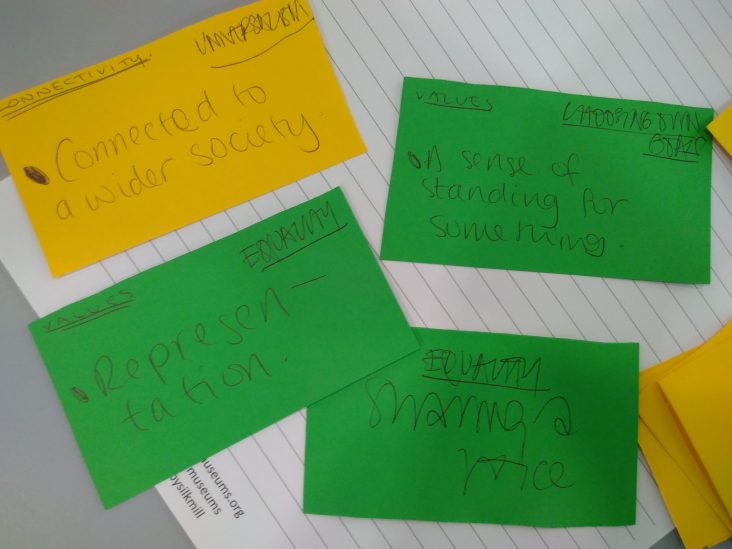How can the cultural sector respond to the referendum?

Much has been written about the Referendum and the cultural sector – including this by Happy Museum founder Tony Butler . In it he identified a role for museums in ‘bridging the cultural gap’ and concludes that museums (and other cultural organisations) ‘offer people a reflective opportunity to consider their own place in the world.’
How we might frame that reflective opportunity? What might we learn from the different beliefs which shaped individual votes? Where might we find common ground and shared values?
In February 2017 Happy Museum hosted a practical workshop which started by exploring the debate and considered what could inform the role of museums and cultural organisations in building connection and social capital in their communities.
The workshop looked at the experiences that shape our decisions, and explored ways to relate to people who voted differently. It brought together thinking from neuropsychologist Kris De Meyer in relation to the psychology of the referendum and how in building our beliefs we may have become more divided. Meanwhile Tom Crompton of Common Cause investigated our values and considers what we share, as well as what divides us. Both had contributed to sessions at past Happy Museum Study Group residentials.
It opened up discussion, debate and for consideration of our role and that of our organisations.
Read a Storify Report of the event including links to post event blogs.
The event was hosted by Tony Butler (Director Derby Museums) and Nat Edwards (Heritage Museums Consultant and previously National Trust for Scotland).
Post workshop resources
More reading around Common Cause and Tom Crompton’s work on values
More details of their current project with Manchester Museum investigating the shared values of the city and a recent blog on English identity, which intersects with some of the themes we explored in our workshop – written with the Scottish philosopher Alastair McIntosh
An article by Kris de Meyer on “entrenched views” for the Conversation: –and a link to his film Right Between Your Ears: here is a trailer
During the workshop Kris referenced Jonathan Haidt’s Keynote to the American Psychological Association – focusing on polarisation of politics in the US
He also suggests the following Books (for those who want to get a more substantial view)
(1) Jonathan Haidt: The Righteous Mind (why good people are divided by politics and religion); origin of the Rider + Elephant metaphor
(2) Carol Tavris + Elliot Aronson: Mistakes were made (but not by me); origin of the Pyramid metaphor

